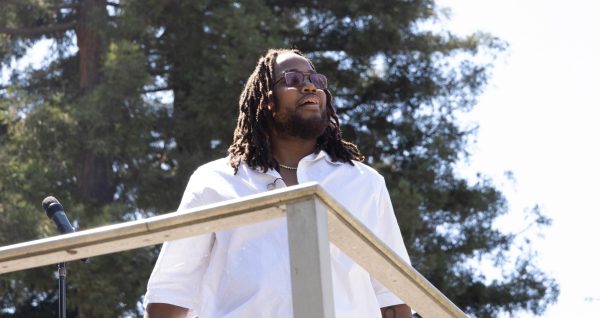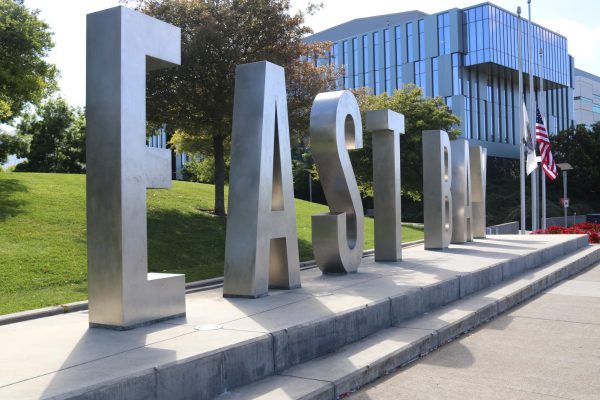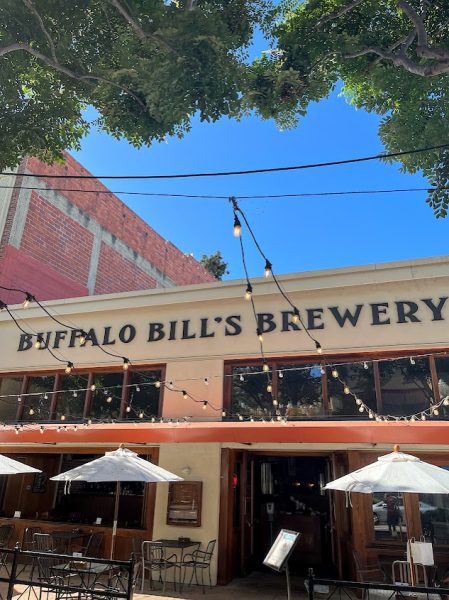Undocumented students find support on East Bay campus
Facts about what exactly happened to Juan Manuel Montes in Calexico, California on Feb. 17 have been in question, but reports confirm that the 23-year-old was detained and eventually deported by the U.S Customs and Border Patrol, according to USA Today.
Montes lived in the U.S. since age 9 and had been granted deportation protections under the Deferred Action for Childhood Arrivals (DACA) program created by President Barack Obama in June 2012 in response to the rise of undocumented students in the United States. But according to news reports, he didn’t have his wallet at the time he was detained, and was unable to provide proper identification.
Although President Trump has taken a hardline stance against illegal immigration during his 2016 presidential campaign, the program is currently still in place. But Montes’ story exemplifies how the current and future status of DACA under the Trump administration is uncertain.
DACA allows immigrants to work and go to school without being deported, according to the U.S Citizenship and Immigration Services (USCIS). According to the 2010 Bay Area Census, there are approximately 11 million undocumented immigrants living in the United States. Roughly 60,000 Bay Area residents have DACA status. DACA aims to prevent those who came to the United States while under the age of 16 from being deported.
“I’m fearful for the future of DACA,” said Melissa Cervantes, Head Facilitator of UndocuAlly — a support community for DACA students — and a coordinator of the GANAS (Gaining Access ‘N Academic Success) program at Cal State East Bay. “And I’m skeptical that Trump will keep his promise to continue DACA or come up with something better. Our immigration system in general is broken, and we need strong leadership to come up with something that will work for years to come. I’m not confident that our current administration will be the one to work on it.”
A Cal State East Bay student currently on DACA status who wished to remain anonymous expressed her concern for potential changes to immigration policies.
“I feel really scared under the Trump Administration,” said an unidentified CSUEB junior. “I’m scared that DACA is gonna be taken away, that I may have to give up all my dreams and aspirations that I have here in the United States and have to go back home to the Philippines.”
Montes is the first person with DACA status to be deported, and he is now suing the Trump administration, according to USA today. Since Montes’ deportation; undocumented immigrants, immigration lawyers, and those that have supported people with DACA status have questioned the Trump administration’s stance on the active deportation policy.
“In the case of Juan Montes, the spokesperson for the Department of Homeland Security has provided little to no information on what exactly happened when Juan was detained and eventually deported,” Cervantes said. “Students with DACA have been told as long as they continue to be ‘good moral citizens’ that they remain protected. Since Juan had already been granted two approvals of DACA, he should have been protected, yet they deported him.”
Cal State East Bay attempts to track the number of undocumented students on campus who take advantage of California Assembly Bills 540 and 2000, but many are unaccounted for and choose to not disclose their status, according to Cervantes. These Assembly bills allow eligible Undocumented students to pay in-state resident tuition fees and apply for financial aid.
The support network of UndocuAlly at CSUEB includes academic advising, financial services and personal counseling, from over 200 staff and students.
“If an East Bay student is feeling scared about any aspect of their immigration status, we hope that they will reach out to one of our UndocuAlly staff or faculty members on campus,” Cervantes said.
UndocuAlly has no formal office space on campus, but instead uses their website — www.csueastbay.edu/undocumented — as a platform to provide students with information about DACA, Advance Parole information, and contact details for their staff and resources. Student Health and Counseling Services (SHCS) also provides group sessions for undocumented students, who have the opportunity to reach out to counselors and remain anonymous in their sessions.
“UndocuAlly lets students know that we can be trusted and not reveal their immigration status to anyone. We help undocumented students find resources to stay in school in the U.S” said Assistant Professor Duke Austin of the Sociology Department at CSUEB.
In order to provide further resource information regarding DACA, UndocuAlly will host an Undocumented Student Resource Summit at 10 a.m. at the Cal State East Bay Hayward Campus on Sunday. It will feature keynote speakers, workshops, a resource fair and attorneys available for brief consultations to inform them of their rights and answer questions for anyone interested.















